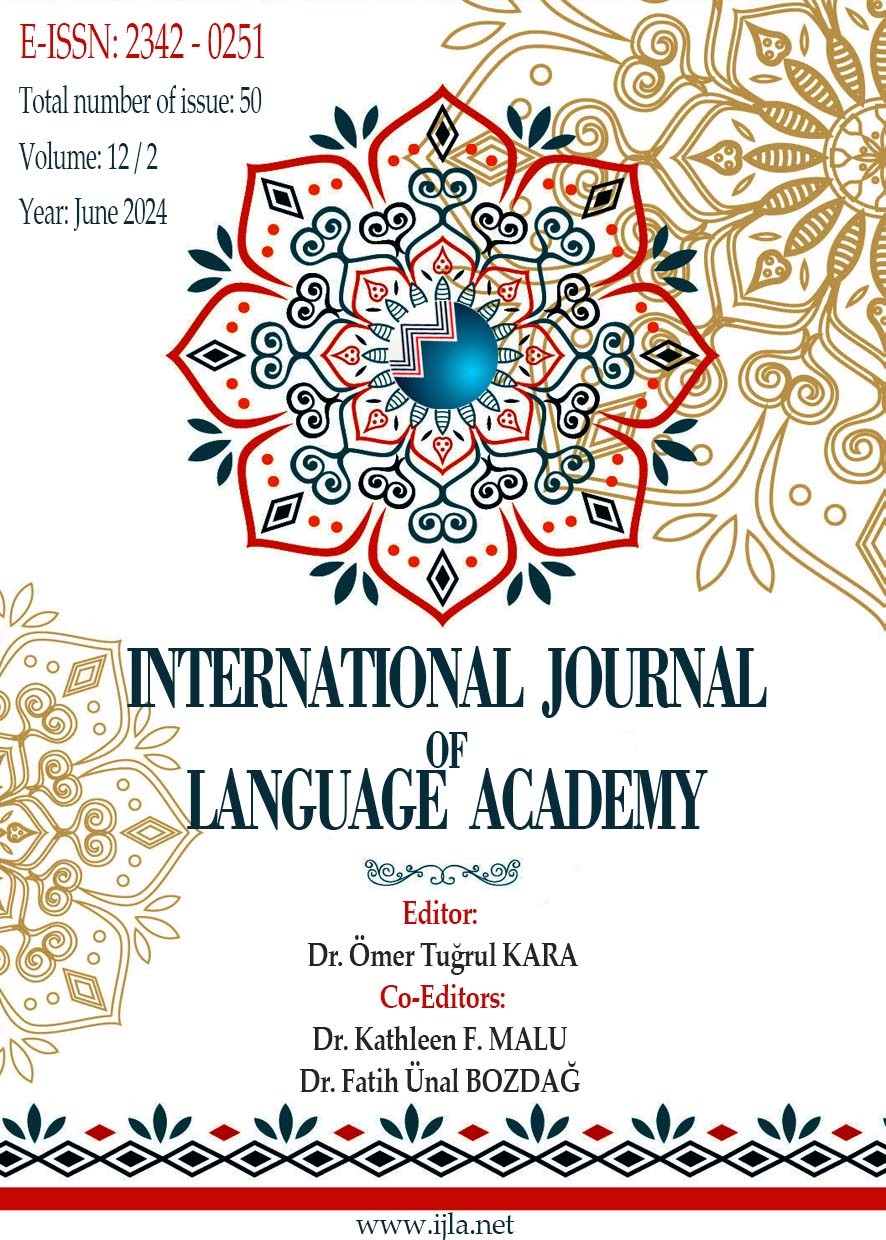TÜRKÇEYİ YABANCI DİL OLARAK ÖĞRENEN B2 ÖĞRENCİLERİNİN SÖZLÜ KAVRAMA TUTUMLARINA YÖNELİK BİR ARAŞTIRMA
Author :
Abstract
Bu araştırmada Türkçeyi yabancı dil olarak öğrenen öğrencilerin sözlü kavrama tutumlarını tespit etmek amaçlanmıştır. Tutum araştırmaları; yabancı dil öğretiminde öğrenci motivasyonunu fark etmek, eğitim ortamını şekillendirmek ve öğretim stratejilerini belirlemek için etkili bir araçtır. Bu nedenle bu çalışmada Türkçeyi yabancı dil olarak öğrenen öğrencilerin sözlü kavramaya yönelik tutumlarının saptanması bir gereklilik olarak görülmüştür. Araştırmanın problem cümlesi “Türkçeyi yabancı dil olarak öğrenen B2 düzeyindeki öğrencilerin sözlü kavrama tutumları nasıl bir dağılım göstermektedir?” olarak belirlenmiştir. Çalışmanın evreni İstanbul Nişantaşı Üniversitesi, örneklemi ise B2 dil düzeyindeki 18 öğrenci olarak belirlenmiştir. Çalışma kapsamında ölçek kullanım izni, etik kurul izni ve onam formları alınmıştır. Araştırmanın yöntemi karma yöntemdir. Yöntemin nicel yönü ölçeklendirme ile sağlanırken nitel yönü odak görüşmeler ile sağlanmıştır. Çalışma kapsamında sözlü kavrama tutumu için çalışmada daha önceki çalışmalardan faydalanılarak sözlü kavrama ölçeği oluşturulmuş ve kullanılmıştır. Araştırma sonucunda ölçeğin kullanımı ve odak görüşmeler aracılığıyla elde edilen nicel ve nitel veriler analiz edilmiş ve öğrencilerin sözlü kavrama pratiği, motivasyonu, güçlü ve zayıf yönleri gibi önemli faktörler hakkında bilgiler elde edilmiştir. Araştırma sonucunda, öğrencilerin sözlü kavrama becerisinin önemini ve gerekliliğini kavradıkları, ancak bu beceriyi geliştirmek için yeterli fırsata sahip olmadıkları görülmüştür. Öğrenciler, sözlü kavrama pratiği yapma, motivasyonlarını sürdürme ve güçlü ve zayıf yönlerini belirleme konusunda zorluk yaşamaktadırlar.
Keywords
Abstract
In this study, it is aimed to determine the oral comprehension attitudes of Turkish EFL learners. Attitude research is an effective tool for recognizing student motivation, shaping the educational environment and determining teaching strategies in foreign language teaching. For this reason, in this study, it was seen as a necessity to determine the attitudes of Turkish EFL learners towards oral comprehension. The problem statement of the study was determined as “What is the distribution of Turkish as a foreign language learners’ attitude towards oral comprehension?”. The population of the study was Istanbul Nişantaşı University and the sample was determined as 18 students at B2 language level. Within the scope of the study, permission to use the scale, ethics committee permission and consent forms were obtained. The method of the study is mixed method. While the quantitative aspect of the method was provided by scaling, the qualitative aspect was provided by focus interviews. Within the scope of the study, a verbal comprehension scale was created and used for verbal comprehension attitude by utilizing previous studies. As a result of the research, quantitative and qualitative data obtained through the use of the scale and focus interviews were analysed and information about important factors such as students' oral comprehension practice, motivation, strengths and weaknesses were obtained. As a result of the study, it was found that students understood the importance and necessity of oral comprehension skills, but they did not have enough opportunities to develop this skill. Students have difficulties in practicing oral comprehension, maintaining their motivation and identifying their strengths and weaknesses.





